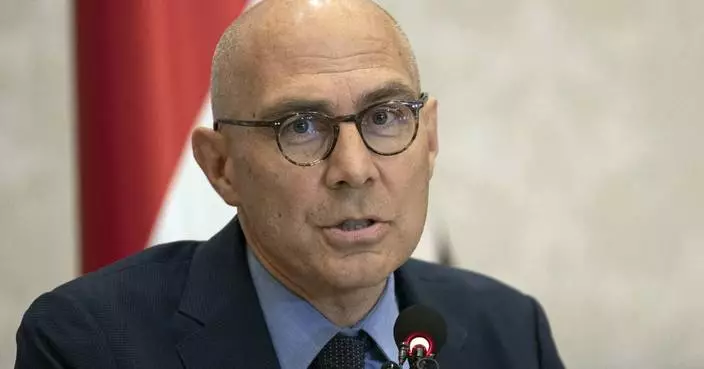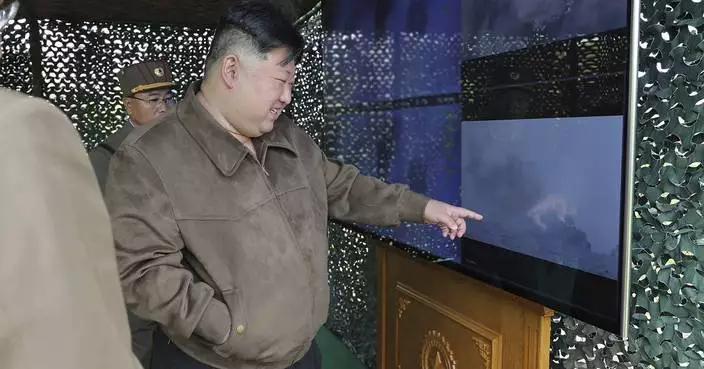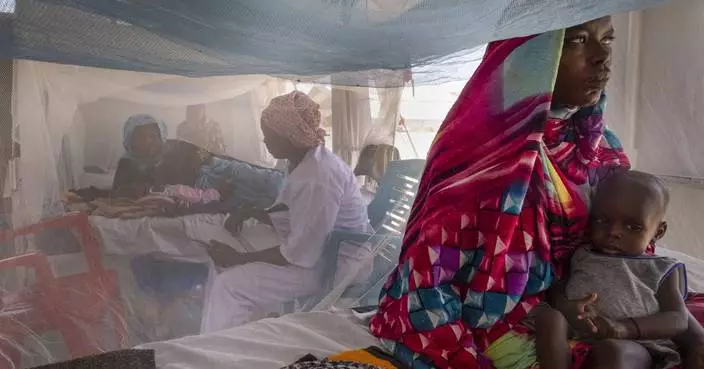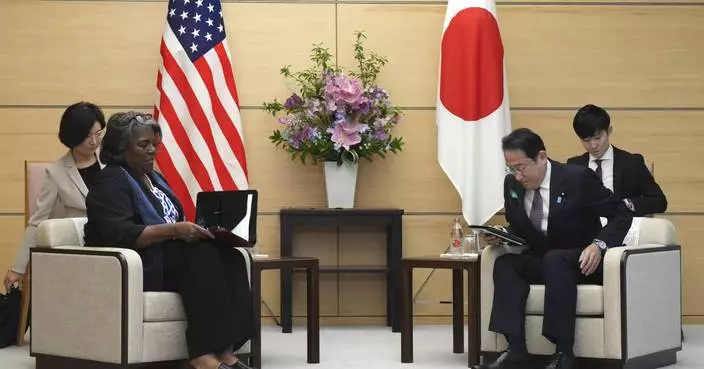The U.N. envoy for Yemen called Friday for the urgent deployment of U.N. monitors to observe the implementation of a cease-fire in the strategic port city of Hodeida and the withdrawal of rival forces — a potential breakthrough in Yemen's four-year civil war.
Martin Griffiths told the Security Council that a speedy presence in the field is "an essential part of the confidence" needed to accompany implementation of Thursday's agreement between Yemen's government and Houthi Shiite rebels reached after eight days of negotiations in Sweden.
Griffiths said in a video briefing from Amman, Jordan that Dutch Maj. Gen. Patrick Cammaert will lead the monitoring mission and could be in the region "as soon as the middle of next week."
While calling the achievements at the talks "a significant step forward," Griffiths also urged caution saying "what's in front of us is a daunting task ... and the hard work is only about to begin."
The conflict in Yemen began with the 2014 takeover of the capital, Sanaa, by Iranian-backed Houthi rebels, who toppled the government of Abed Rabbo Mansour Hadi. A Saudi-led coalition allied with Yemen's internationally recognized government has been fighting the Houthis since 2015.
Saudi-led airstrikes have hit schools, hospitals and wedding parties and killed thousands of Yemeni civilians. The Houthis have fired long-range missiles into Saudi Arabia and targeted vessels in the Red Sea.
The conflict has killed over 10,000 people, created the world's worst humanitarian crisis and brought the country to the brink of famine. Fighting has recently intensified near the port of Hodeida, the "lifeline" for the delivery of 70 percent of Yemen's humanitarian aid and imports including desperately needed food and fuel.
Griffiths said the "ghastly prospect" of famine has made solving the fighting in Hodeida "both urgent and necessary."
The cease-fire agreement in the province of Hodeida, which entered into force upon its publication Thursday, includes "phased but rapid mutual withdrawals from both the three Hodeida ports and the city," he said.
It also gives the U.N. a leading role in managing and carrying out inspections at the ports of Hodeida, Saleef and Ras Issa which must "happen within days," Griffiths said.
The government and the Houthis also reached "a mutual understanding to ease the situation in Taiz" and open humanitarian corridors for people and goods to cross the front lines and reduce fighting in the province, he said.
Looking ahead, Griffiths said both sides agreed to meet again at the end of January and discuss his framework for a political solution to the war that will restore peace to Yemen. He noted that the Houthis "are in agreement with the general tenor of all its elements" while the government has some reservations.
The U.N. envoy responded to people who question whether the parties can be trusted to implement the agreements made in Sweden by saying there are different views.
"My own is that this is not about whether we can trust one or the other on this or that commitment," Griffiths said. "This is about helping them both to make it happen and reporting on their success, and noting those areas where they fall short of that."
He stressed that "verification is the key to building trust."
Griffiths quoted Swedish Foreign Minister Margot Wallstrom who said after Thursday's announcement of the agreements that "no longer can Yemen be considered a forgotten war."
"And now we can begin to hope for a track that may indeed lead to its early resolution," Griffiths added.
WASHINGTON (AP) — Lawyers for an American believed to be held by the Taliban for nearly two years are asking a United Nations human rights investigator to intervene, citing what they say is cruel and inhumane treatment.
Ryan Corbett was abducted Aug. 10, 2022, after returning to Afghanistan, where he and his family had been living at the time of the collapse of the U.S.-based government there a year earlier. He arrived on a valid 12-month visa to pay and train staff as part of a business venture he led aimed at promoting Afghanistan's private sector through consulting services and lending.
Corbett has since been shuttled between multiple prisons, though his lawyers say he has not been seen since last December by anyone other than the people with whom he was detained.
In a petition sent Thursday, lawyers for Corbett say that he's been threatened with physical violence and torture and has been malnourished and deprived of medical care. He's been held in solitary confinement, including in a basement cell with almost no sunlight and exercise, and his physical and mental health have significantly deteriorated, the lawyers say.
Corbett has been able to speak with his family by phone five times since his arrest, including last month. His family has not been able to see him — his only visits have been two check-ins from a third-party government — and their characterizations of his mistreatment are based on accounts from recently released prisoners who were with him and his openly dispirited tone in conversations.
“During Mr. Corbett’s most recent call with his wife and children, Mr. Corbett indicated that the mental torture and anguish have caused him to lose all hope,” said the petition, signed by the Corbett family attorneys, Ryan Fayhee and Kate Gibson.
The petition is addressed to Alice Edwards, an independent human rights investigator and the special rapporteur for torture in the Office of the High Commissioner for Human Rights at the U.N. It asks Edwards, who was appointed by the U.N. Human Rights Council, to “urgently reach out to the Taliban to secure Mr. Corbett’s immediate release and freedom from torture, as guaranteed by international law.”
"This situation is just dragging on, and I’m increasingly concerned and taking steps that I hope will make a difference and help the situation — just increasingly concerned and panicking about Ryan’s deteriorating health and physical and mental health," Corbett's wife, Anna, said in an interview. “And that was leading me to take this next step.”
The U.S. government is separately working to get Corbett home and has designated him as wrongfully detained. A State Department spokesman told reporters last month that officials had continually pressed for Corbett's release and were “using every lever we can to try to bring Ryan and these other wrongfully detained Americans home from Afghanistan."
A spokesperson for the Interior Ministry in Afghanistan said this week that it had no knowledge of Corbett's case.
Corbett, of Dansville, New York, first visited Afghanistan in 2006 and relocated there with his family in 2010, supervising several non-governmental organizations.
The family was forced to leave Afghanistan in August 2021 when the Taliban captured Kabul, but he returned the following January so that he could renew his business visa. Given the instability on the ground, the family discussed the trip and “we were all pretty nervous,” Corbett's wife said.
But after that first uneventful trip, he returned to the country in August 2022 to train and pay his staff and resume a business venture that involved consulting services, microfinance lending and evaluating international development projects.
While on a trip to the northern Jawzjan province, Corbett and a Western colleague were confronted by armed members of the Taliban and were taken first to a police station and later to an underground prison.
Anna Corbett said that when she learned her husband had been taken to a police station, she got “really scared” but that he was optimistic the situation would be quickly resolved.
That, however, did not happen, and Anna Corbett, who has three teenage children and makes regular trips to Washington, said she's trying to advocate as forcefully as she can while not letting “anxiety take over.”
“I feel like it’s the uncertainty of all of it that just is so difficult because you just don’t know what’s going to come at you — what call, what news," she said. "And I’m worried about Ryan and the effect of the trauma on him and then also on my kids, just what they’re experiencing. I've tried to protect them the best I could, but this is so difficult.”
Associated Press writer Riazat Butt in Kabul, Afghanistan, contributed to this report.
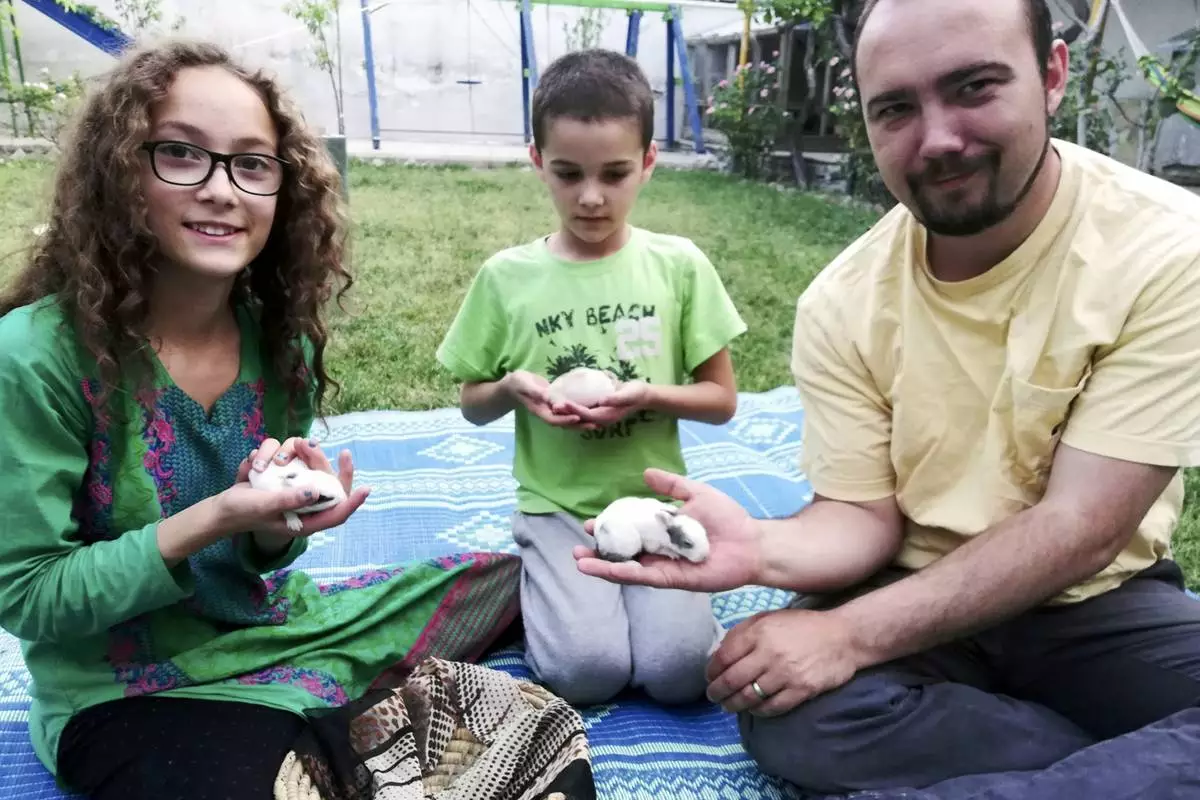
This family photo shows Ryan Corbett holding rabbits with his daughter Miriam and son Caleb in Kabul, Afghanistan in 2020. Lawyers for Corbett, believed held by the Taliban for nearly two years, are asking a United Nations human rights investigator to intervene, citing what they say is cruel and inhumane treatment. Corbett was abducted on August 10, 2022 after returning to Afghanistan, where he and his family had been living at the time of the collapse of the U.S.-based government there one year earlier, on a valid 12-month business visa to pay and train staff. (AP Photo/Anna Corbett)





